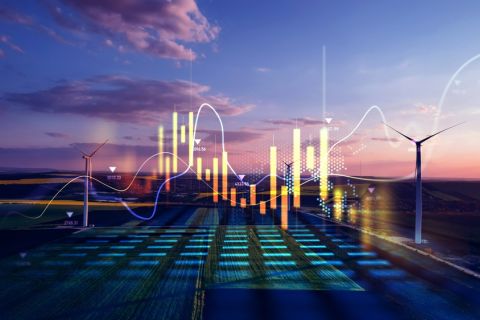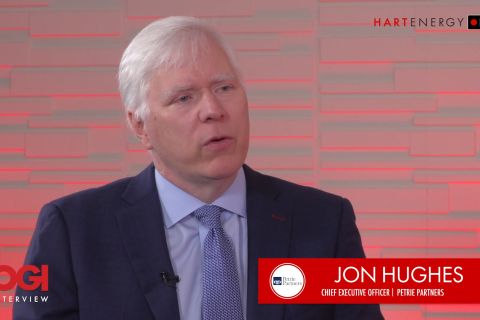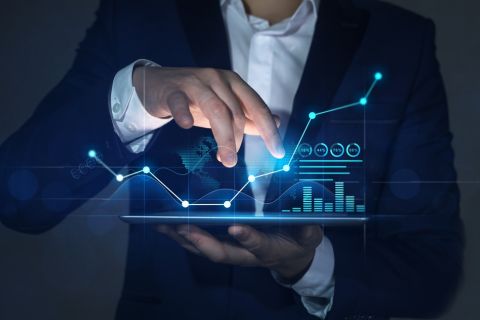
The debate continues to rage within the oil and gas supply chain as to the best roadmap for a digital journey. The benefits of greater visibility, improved operational efficiency, enhanced safety, healthier environmental performance and a reduction in both capex and opex are well recorded.
But who should be part of that process? Is it best to recruit and nurture these digital capabilities within your workforce, or should the oil and gas sector look outside its traditional supply chain to companies that are specialists in digital technologies?
There are a host of traditional IT companies scrambling for a piece of the action, and among them is IBM with its Watson data platform. One recent success has been with Australian IOC Woodside Energy, which utilized IBM Watson to help retain the knowledge of senior experts and make it possible for junior employees to locate, analyze and learn from it.

A man with a foot in both camps is Ulisses T. Mello, director of IBM Research in Brazil and an IBM distinguished engineer. He is also an IBM global research leader for the natural resources industry. Mello was a researcher and manager of the petroleum and energy analytics group in the business analytics and mathematical sciences department at IBM Research, where he was responsible for the development of strategic thought leadership in chemicals and petroleum. His research work was focused on computational geosciences, which intersects aspects of geology, geophysics, applied math and computational sciences that addressed multiscale geological processes, algorithms, methods and software design.
Although IBM may be relatively recent entrants into oil and gas, Mello is keen to stress that it has been a supplier of high-performance computing since the beginning. As for the oil and gas sector, one pattern that he has seen emerge over the years is the ability of the industry to create a concept and acquire more data.
“We saw that in intelligent wells and integrated operations,” he said in an interview with Hart Energy. “This is getting to the point that the amount of the information is getting out of hand because we have more than is humanly impossible to process. That is where AI comes in. AI has been around for a while, but in the past, we did not have the computing power that we have now. Last year we announced a partnership with Nvidia that allowed us to be fifty times more efficient in incorporating deep learning algorithms.
Mello is adamant that computing power is set to increase dramatically. “We believe that in three years we are going to have quantum computing: we already have a quantum computing offering commercially,” he says. “Computer power is going to continue to grow at an exponential rate, and the data is also growing exponentially. That is the part where AI (artificial intelligence) can help because, otherwise, it is impossible to handle that data and share the knowledge.”
As an example of the volume of data involved, Mello points to the medical sectors that publish 6,000 papers a day. “There is no doctor that can assimilate that kind of information,” he continued. “One thing that we are doing well is called Narrow AI or a single task. This is where we look at millions of pictures and recognize patterns. We are now applying this in geoscience rock seismic section to try to recognize patterns.”
RELATED:
- Applying AI To Production Operations
- AI Adoption Is Accelerating In The Energy Sector
- Learning To Leverage Artificial Intelligence In Oil, Gas
Narrow AI is a specific type of artificial intelligence in which a technology outperforms humans in some very narrowly defined task. Unlike general artificial intelligence, narrow artificial intelligence focuses on a single subset of cognitive abilities and advances in that spectrum. Given the growing computing power available, narrow AI is proving a useful tool.
“It is working well, and we are moving to what we call Brother AI and other branches of AI such as knowledge representation and reason,” Mello said. “This is where we start to use structures that are much richer semantically that can find the relationship between concepts, and we began to bring all those concepts together and create AI that will be both a critic and an assistant.
“If you are very experienced, this AI is going to help you by asking whether you have considered certain things. If you are a junior it is going to point you in the direction of what we have seen in other industries. It can help a lot of people to gain productivity. It should do a better job removing laborious, repetitive work, and give us more time to do what we do very well, which makes a judgment. Computers are very good at doing repetitive work, but they are not as good at making a judgment of things.
“AI has a bright future, and therefore, technology companies are getting more and more involved because we are going to be an enabler. We bring all that computer power, all that computer science to help to handle the amount of data that's coming out and help increase competitveness and confidence.”
Recommended Reading
Marathon Petroleum Sets 2024 Capex at $1.25 Billion
2024-01-30 - Marathon Petroleum Corp. eyes standalone capex at $1.25 billion in 2024, down 10% compared to $1.4 billion in 2023 as it focuses on cost reduction and margin enhancement projects.
Humble Midstream II, Quantum Capital Form Partnership for Infrastructure Projects
2024-01-30 - Humble Midstream II Partners and Quantum Capital Group’s partnership will promote a focus on energy transition infrastructure.
Hess Corp. Boosts Bakken Output, Drilling Ahead of Chevron Merger
2024-01-31 - Hess Corp. increased its drilling activity and output from the Bakken play of North Dakota during the fourth quarter, the E&P reported in its latest earnings.
The OGInterview: Petrie Partners a Big Deal Among Investment Banks
2024-02-01 - In this OGInterview, Hart Energy's Chris Mathews sat down with Petrie Partners—perhaps not the biggest or flashiest investment bank around, but after over two decades, the firm has been around the block more than most.
Some Payne, But Mostly Gain for H&P in Q4 2023
2024-01-31 - Helmerich & Payne’s revenue grew internationally and in North America but declined in the Gulf of Mexico compared to the previous quarter.






